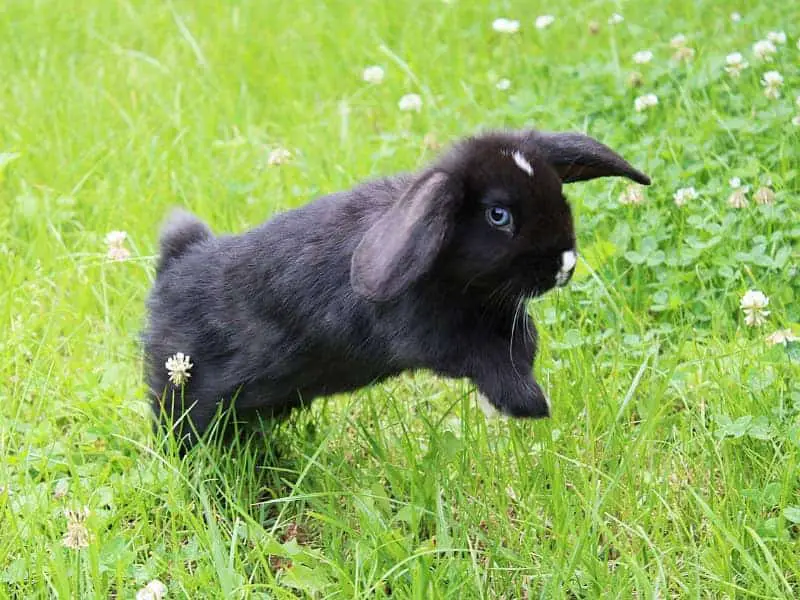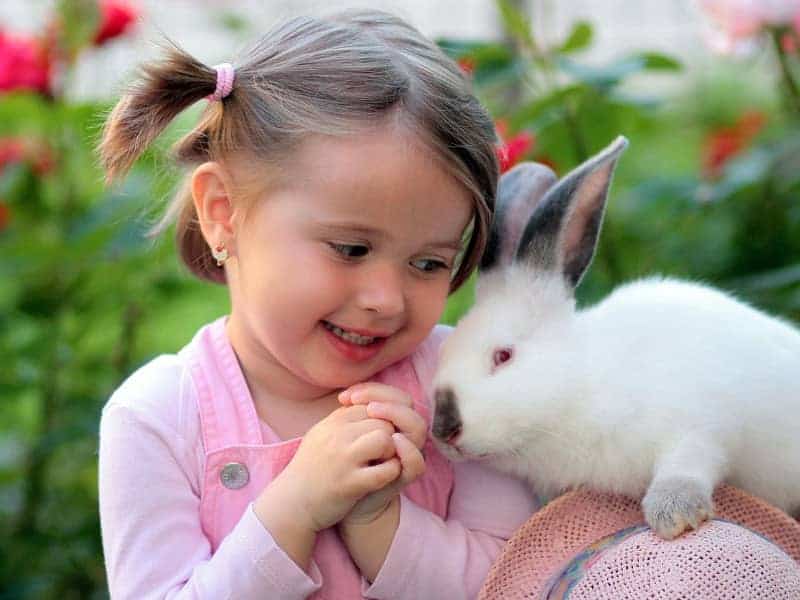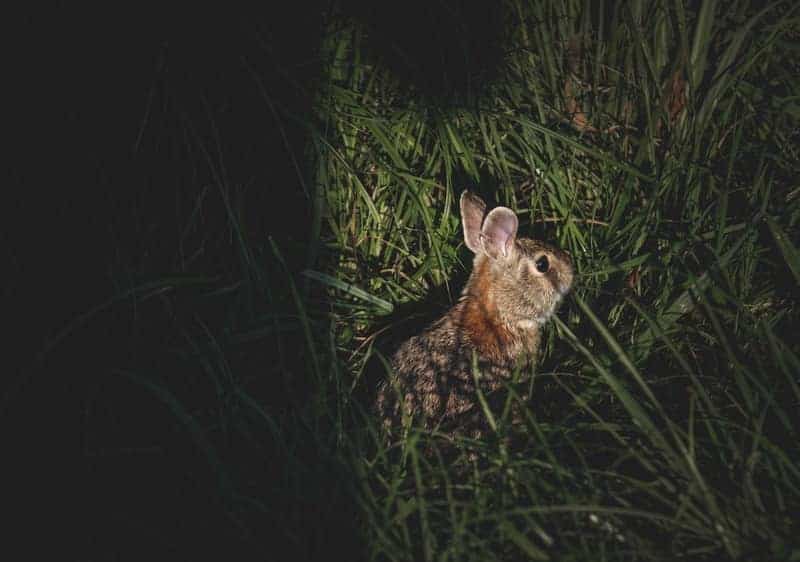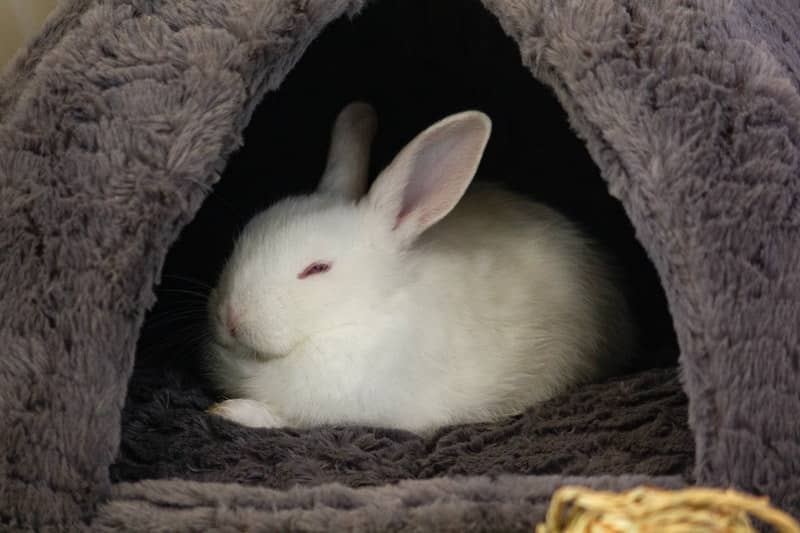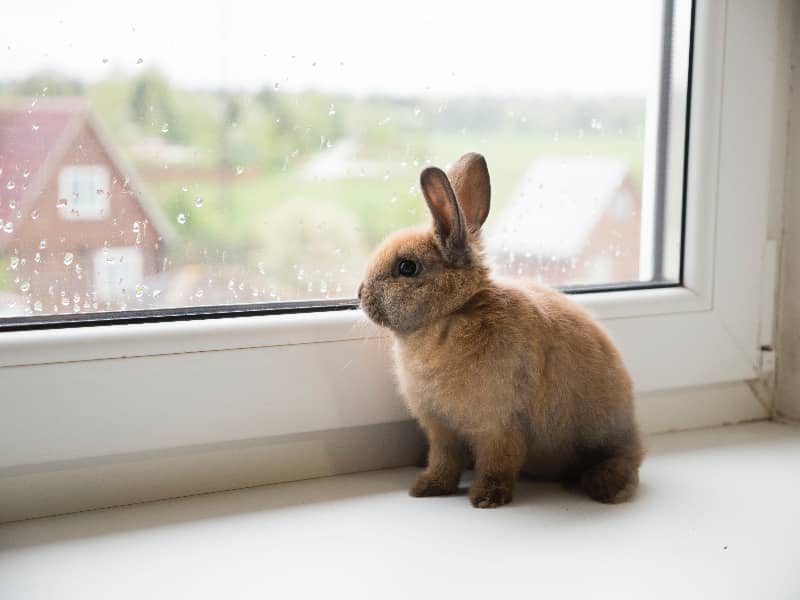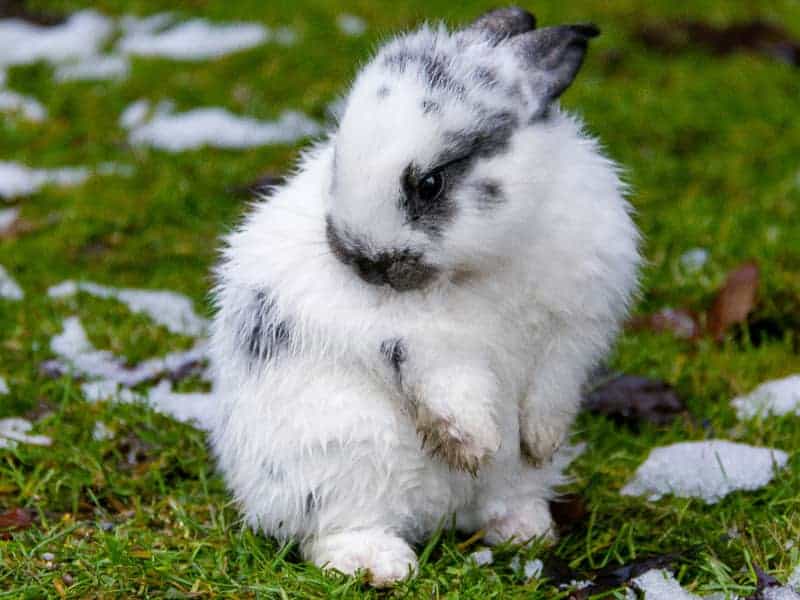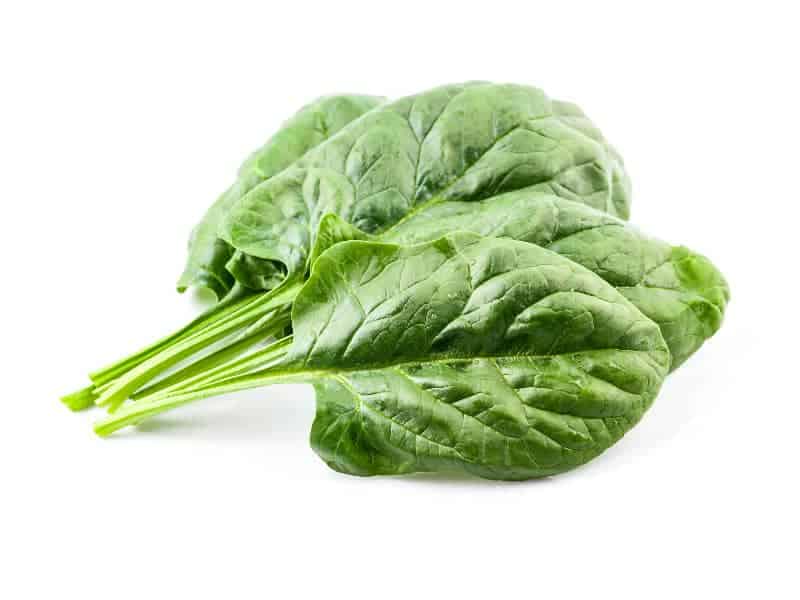
Are rabbits allowed to eat spinach?
Today we're taking an in-depth look at a recurring topic in the world of rabbit care: are rabbits allowed to eat spinach? Before you serve your fluffy friend a serving of spinach next time, let's dive deeper into this question. It's important to know which foods are safe for our little companions and which are not.
- Are rabbits allowed to eat spinach?
- Nutrition of rabbits: A brief overview
- Spinach: a healthy leafy vegetable?
- Oxalic acid in spinach: a cause for concern?
- The golden rule: observe variety and quantity
- How do I introduce spinach into my rabbit's diet?
- Other food for rabbits
- Rabbits and water
- Spinach and other "oxalic acid" foods
- What foods should rabbits avoid?
- The relationship between diet and rabbit health
- Nutritional needs of rabbits at different stages of life.
- Conclusion: Are rabbits allowed to eat spinach?
Nutrition of rabbits: A brief overview
Rabbits are known for their penchant for vegetables and leafy greens, and for good reason. In the wild, their diet consists mainly of grasses, herbs and leaves, and this should also be the basis of our pet rabbits' diet. Hay should always be the main part of the diet, supplemented by fresh vegetables and herbs.
Spinach is a leafy vegetable that contains many valuable nutrients, and at first glance might seem like a good addition to your rabbit's diet. But what does it really look like?
Spinach: a healthy leafy vegetable?
At first glance, spinach seems to be an excellent food for rabbits. It contains a lot of vitamin A, vitamin C and folic acid, all of which can contribute to your rabbit's overall health. Likewise, spinach is a good source of fiber, which is important for supporting your rabbit's digestive system.
But now, before you run to the nearest supermarket to buy a big bag of spinach, there are a few more things to consider.
Oxalic acid in spinach: a cause for concern?
A major concern with feeding spinach to rabbits is its oxalic acid content. This compound is naturally occurring in many plants and is not a problem in small amounts. But in larger amounts, it can cause problems. The oxalic acid in spinach can combine with calcium in your rabbit's body and form oxalate stones, which are painful and can lead to serious health problems.
Is this now a reason to panic? Not necessarily. It depends on the amount. Feeding spinach occasionally will probably not harm your rabbit. However, it should not be considered a main part of the diet and you should make sure that you offer a variety of other vegetables and herbs.
The golden rule: observe variety and quantity
As with many things in life, the rule here is: everything in moderation. A small spinach snack occasionally is fine and can provide your rabbit with valuable vitamins and minerals. However, it is important that you provide your rabbit with a varied diet. This includes a variety of vegetables and herbs so that your rabbit gets a wide range of nutrients.
How do I introduce spinach into my rabbit's diet?
Should you decide to feed your rabbit spinach, it is important that you introduce it slowly into the diet. Any change in a rabbit's diet should be made gradually to prevent digestive problems.
Start with a small amount and watch your rabbit for signs of discomfort or digestive problems. If all goes well, you can gradually increase the amount, but remember that spinach should only be fed in small amounts due to the oxalic acid content.
Other food for rabbits
There are many other healthy foods you can feed your rabbit. Some of the best vegetables for rabbits are broccoli, carrots (including greens), peppers and squash. Fruits should be fed only occasionally and in small amounts because of their high sugar content. Apples (without seeds), pears, peaches and melons can be good treats.
Remember that hay should always be the main food for your rabbit. It provides the necessary fiber for healthy digestion and helps keep your rabbit's teeth healthy.
Rabbits and water
While talking about the diet of rabbits, we should not forget that water is an indispensable part of it. Rabbits must always have access to fresh, clean water. This not only helps keep them hydrated, but also aids in digestion.
Spinach and other "oxalic acid" foods
Spinach is not the only food high in oxalic acid. Other foods such as chard, rhubarb leaves and even some berries also contain high amounts of oxalic acid. As with spinach, you should only feed these foods to your rabbit in moderation to avoid the formation of oxalate stones.
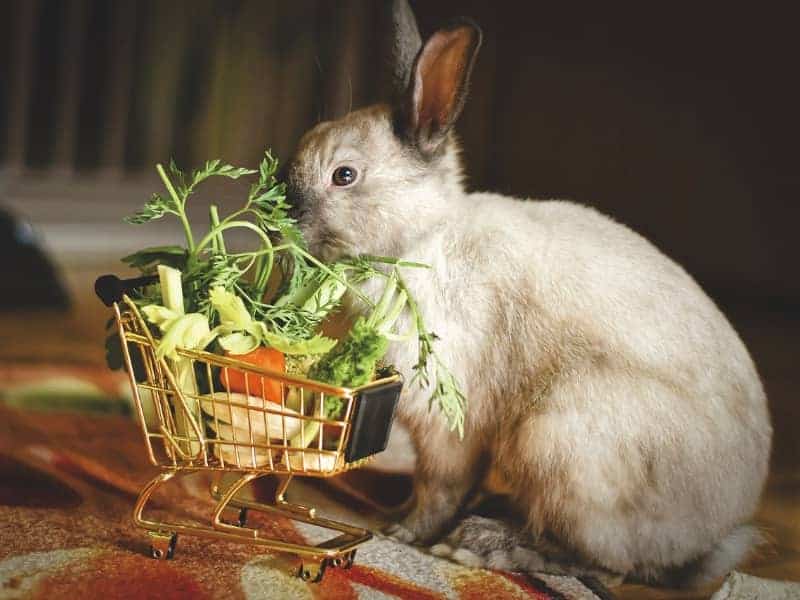
What foods should rabbits avoid?
There are certain foods that you should never give your rabbit. These include onions, garlic, avocado, chocolate, and anything with high amounts of sugar or artificial additives. Also, certain plants can be toxic to rabbits, including nightshade plants such as potatoes and tomatoes.
The relationship between diet and rabbit health
A balanced diet is critical to your rabbit's health. Unhealthy eating habits can lead to a variety of health problems, including digestive problems, obesity, heart disease and even shorter life expectancy. Make sure you provide your rabbit with a varied diet that is high in fiber and low in fat and sugar.
Nutritional needs of rabbits at different stages of life.
Rabbits have different nutritional needs at different stages of life. Young rabbits, for example, need a different type of food than adult rabbits to support their growth and development. Older rabbits may need special diets to treat or prevent health problems. It is important that you know these needs and adjust your rabbit's diet.
Conclusion: Are rabbits allowed to eat spinach?
In summary, spinach is safe for rabbits in small amounts and as part of a balanced and varied diet. But because of the oxalic acid content, it should not be given too often or in too large quantities.
Before introducing a new type of vegetable into your rabbit's diet, always consult a veterinarian first. And remember to introduce new foods slowly and watch for possible signs of discomfort or digestive problems.
With a little care and knowledge, you can ensure that your rabbit enjoys a healthy, nutritious and tasty diet. So, happy feeding and cuddle your fluffy friend from us!
Author

-
Garden animal - A life with nature
Welcome to my animal blog! My name is Dirk and I am happy to take you on my journey through the fascinating world of animals and gardening.
Born 54 years ago, I have had an insatiable curiosity for the animal world around me since childhood. Although I have moved professionally in other industries, my true passion has always been animals and nature. It is remarkable how a small garden has become such an important part of my life.
Many of my fondest memories are associated with the animals that share our home. Whether it's the curious squirrels that scurry across the trees in the morning, the colorful variety of birds that visit our feeders, or the busy bees and butterflies that pollinate our flowers, every moment with them is invaluable to me.
This blog is my contribution to share my experiences, discoveries and insights with like-minded people. Here I will share stories of unforgettable encounters with animals, give tips on gardening and creating wildlife-friendly habitats, and take you on my journeys through nature.
Thank you so much for being here!
Cordial,
Dirk aka garden animal
Last posts
- 27. February 2024PetsVeganes Hundefutter – Grün und Gesund?
- 18. January 2024ChickensOregano für Hühner
- November 27, 2023HamsterDiurnal hamsters
- November 24, 2023HamsterHamster hammock

